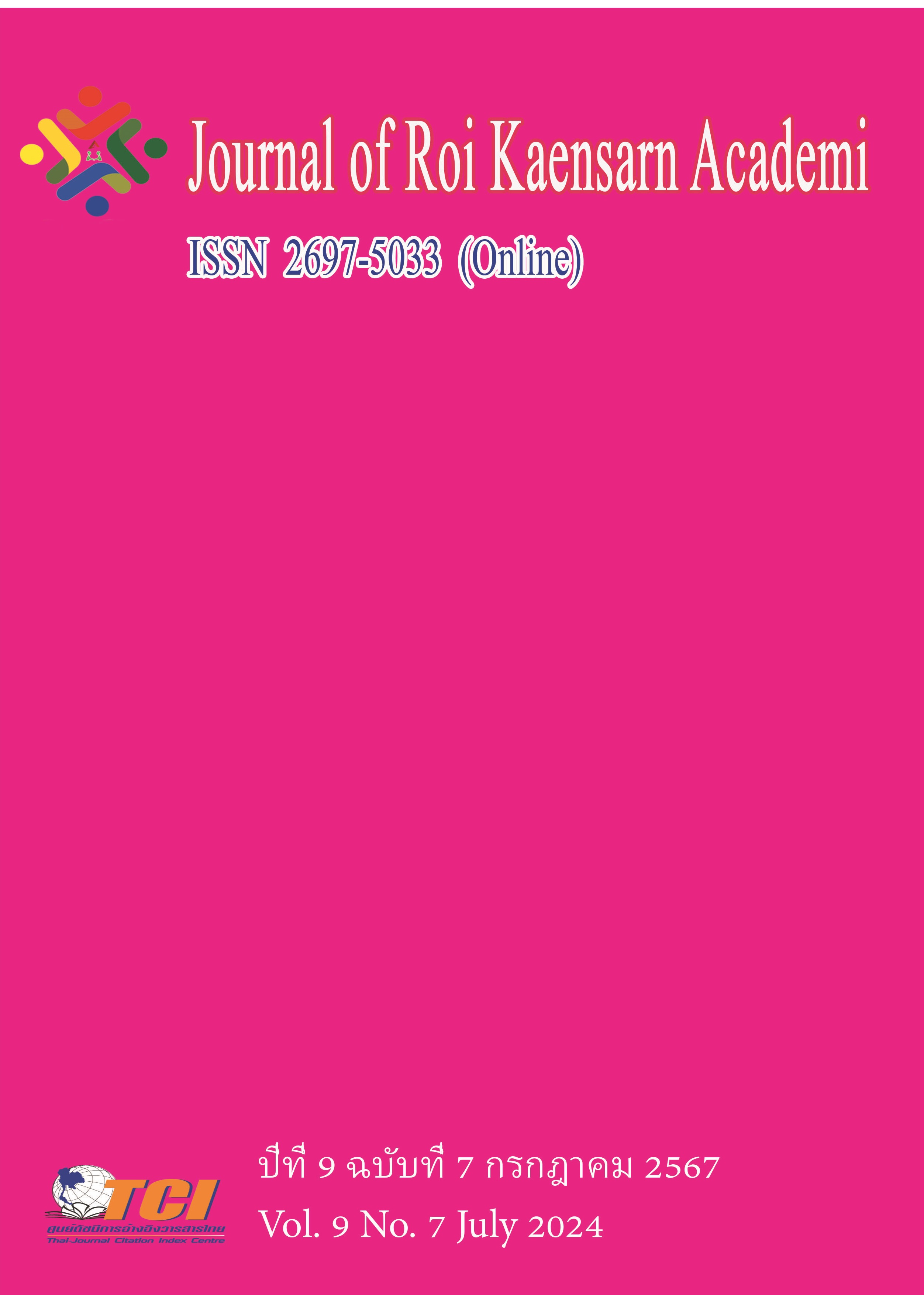The Development of Training Curriculum for Enhancing Leadership of Standardized Training Resident Physicians in Guangxi Province, People’s Republic of China
Main Article Content
บทคัดย่อ
Leadership is a core competency in the roles and responsibilities of physicians. Physician leadership is essential for the advancement of global medicine. Research on leadership among Chinese resident physicians is still in its early stages, and the overall level of leadership among Chinese physicians is not high, Chinese physician leadership faces challenges. There has been a lack of corresponding research and a universally accepted curriculum system in the past, which is a critical and core issue that needs to be addressed to enhance the leadership of resident physicians.
The objective of this research was to improve the leadership knowledge level of standardized training resident physicians in Guangxi Province through the implementation of the developed leadership training curriculum. The survey sample consisted of 336 Standardized Training Resident Physicians from six hospitals. The implementation sample consisted of 30 standardized training resident physicians, selected through purposive sampling. Research tools included literature content analysis, questionnaires, pre-tests and post-tests, expert evaluation forms, and satisfaction surveys. Quantitative data were analyzed using percentage, mean, standard deviation and t-test. Qualitative data were analyzed using content analysis.
The results indicated that the overall leadership level of standardized training resident physicians in Guangxi Province, People’s Republic of China, was at a moderate level. The training curriculum to enhance the leadership of standardized training resident physicians in Guangxi Province was developed and designed, including two modules: Communication and cooperation ability, and management ability. Leadership knowledge and ability levels were assessed by post-training and showed a significant increase compared to pre-training, with statistically significant differences at .01 level. The overall satisfaction survey for the leadership training curriculum was at the highest level. Five experts evaluated the training curriculum, with results showing the highest levels of utility, feasibility, and propriety, and a relatively high level of accuracy, with the highest average for feasibility.
Conclusion: At present, the overall leadership level of standardized training residents physicians in Guangxi is at a moderate level, and the main shortcoming lies in the low level of communication and cooperation ability and management ability; Designed and developed leadership training curriculum in Guangxi Province, China, with strong utility, feasibility and propriety;The leadership training curriculum has the highest overall satisfaction; 5 Experts generally believe that the training curriculum is highly utility, feasibility, propriety and accuracy, and can be used and further promoted.
Article Details
เอกสารอ้างอิง
Baohong, et al. (2006). Investigation and analysis of the global basic standards of medical education after graduation. Chinese Higher Medical Education. 16 (8), 35-36.
Chen, S., & Liang, T. (2022). Talking about the cultivation of leadership in the process of standardized training for residents. Chinese Postgraduate Medical Education. 6 (5), 439-442.
Chen, X. (2002). Curriculum and teaching theory. Changchun: Northeast Normal University Press.
China Ministry of Health. (1993). Notice on the implementation of the "Trial Measures for the Standardized Training of Clinical Residents". Online. Retrieved July 20, 2023, from https://wenku.baidu.com/view/cbcf25060a12a21614791711cc7931b765ce7bb2.html?_wkts_=1692608022984
Ding, N. (2005). Discussion on the systematic structure of curriculum theory. Curriculum, Textbook, Teaching Method, 2005 (9), 37-39.
General Office of the National Health and Family Planning Commission. (2014). Notice on printing and distributing standardized residential physician training base identification standards (trial implementation) and residential physician standardization training content and standards (trial implementation) (nhc.gov.cn). online. Retrieved July 20, 2023, from hattps://www.gov.cn/gzdt/2014-01/17/content_2569096.htm
General Office of the State Council. (2020). Guiding opinions on accelerating the innovation and development of medical education. Online. Retrieved December 15, 2022, from https://www.gov.cn/zhengce/content/2020-09/23/content_5546373.htm
Guo, J. (1998). On the reform of curriculum management system in China. Teaching and Management, (Z2), 67-78.
Jia, Y., Bai, B., He, F., & Pan, H. (2021). A survey of medical leadership training and curriculum construction. Basic & Clinical Medicine, 41 (6), 923-926.
Jin, Y. (2012). Curriculum theory. Beijing: China Renmin University Press.
Kala, S., & Isaranralai, S. P. A. (2010). A electronic learning and constructivism: A model for nursing education. Nurse Education Today, 30 (1), 61-66.
Li, M. (2002). What exactly does constructivism give us? On the influence of constructivist epistemology on instructional design. China Audio-visual Education, 2002 (6), 10-14.
Luo, L., et al. (2016). Investigation of the clinical specialty leadership curriculum at Peking Union Medical College. Union Medical Journal, 7 (6), 477-478.
Ornstein, A. C., & Hunkins, F. P. (2002). Curriculum: Foundations, principles, and issues (Translated by Ke Sen). Nanjing: Jiangsu Education Press.
Shi, L. (1996). Curriculum theory: Foundations, principles and problems of curriculum. Beijing: Educational Science Publishing House.
Stenhouse, L. (1975). An introduction to curriculum research and development. London: Heinemann.
Swing, S. R. (2007). The ACGME outcome project: Retrospective and prospective. Medical Teacher, 29 (7), 648-654. DOI: 10.1080/01421590701392903
Tyler, R. W. (1949). Basic principles of curriculum and instruction. Chicago, IL: University of Chicago Press.
Zhang, H. (2001). Curriculum and pedagogy. Shanghai: Shanghai Education Press.

